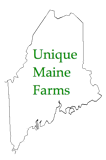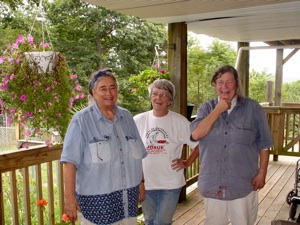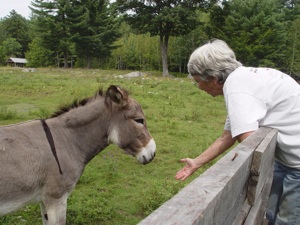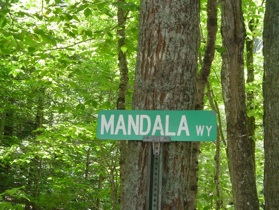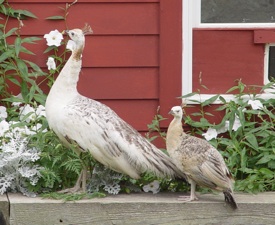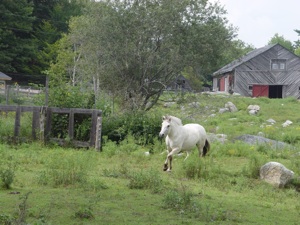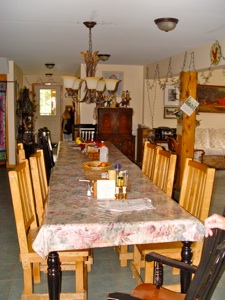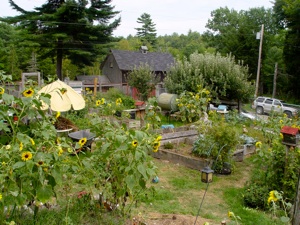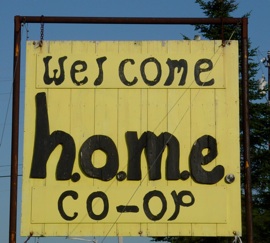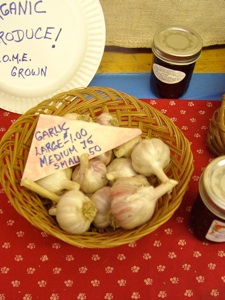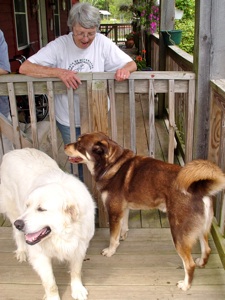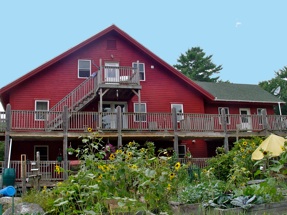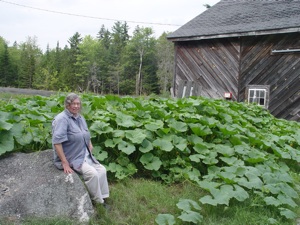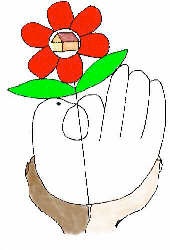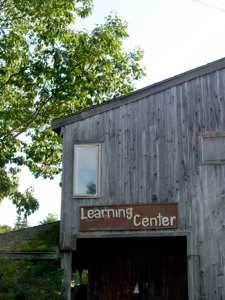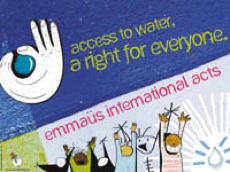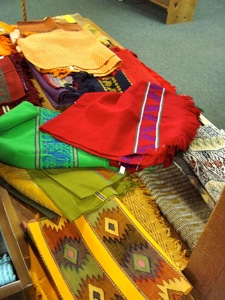Name: Mandala Farm - East Orland
part of h.o.m.e.
Homeworkers Organized
for More Employment
Location: on U.S. Routes 1 and 3
on top of hill - few miles
east of Bucksport, Maine
Mailing Address:
P.O. Box 10
Orland, Maine 04472
Phone: 207-469-7961
Fax: 207-469-1023
Email: info@homecoop.net
Website: www.homecoop.net
Products and Services:
-organic gardens
-farmer’s market - Bucksport
-farmer’s market - Ellsworth
-Mandala Farm and Shelter - East Orland
-craft shop
-pottery, weaving, jewelry, woodwork shops
-shelter
-food pantry, soup kitchen, Senior Farm Share
-sawmill and shingle mill and bargain barn
-daycare
-wood harvesting and auto repair
-wreaths
-sister community in Guatemala
-learning center, computer classes, job training
-G.E.D. preparation, ESL, Literacy
-counseling and job training
-house construction
What Makes the Mandala Farm in East Orland So Unique?
It takes a few minutes by car to navigate the steep dirt drive up Mandala Way, in East Orland, to finally reach Mandala Farm. It seems like an unlikely place for a homeless shelter and a working farm to be located because of its extremely remote location. However, when the 350-acre farm is finally reached, it becomes crystal clear why the St. Francis Community chose this spot for their farm and shelter.
Mandala Farm is set in an extremely peaceful and strikingly beautiful location. There are woods, fields, and frontage on Toddy Pond. Homes for seven members of the community are situated on the isolated property. An assortment of animals roam freely and guests immediately sense a feeling of welcome and serenity.
It is very appropriate that a group of individuals
with the name of St. Francis Community is undertaking the work that they are at this particular location. St. Francis of Assisi was well-known for his work with the disenfranchised and the poor. His love for animals and the environment has often been recognized. If St. Francis of Assisi were alive today it would be a safe bet to say that he would heartily endorse the efforts taking place at Mandala Farm in East Orland and also at h.o.m.e. (Homeworkers Organized for More Employment) in Orland.
The St. Francis Community is an active participant in the worldwide Emmaus movement which was begun by the French priest, Abbé Pierre. This movement is based on the principles of helping those in need; helping people help themselves; helping communities, not just individuals; and helping to overcome systems of oppression. The motto at Mandala Farm and h.o.m.e. is “Serve First Those Who Suffer Most.” The St. Francis Community has supported helping individuals with issues of wellness and recovery. Counseling is offered and twelve-step meetings take place on Mondays, Thursdays, and Fridays at 12:30 p.m.
Reaching out on an international level to those in need is intrinsic to the Emmaus Movement. In addition to taking action on a local level, the St. Francis Community thinks globally. They have conducted mission trips to their sister community in San Juan Comalapa, Guatemala. They recently sent a large cargo of goods with clothing, kitchen items, bicycles, and tools to Guatemala.
Emmaus International is concerned with providing water to dry villages around the world. The St. Francis Community is hoping to raise $700 to provide a water line for their friends in Guatemala who have to walk miles to get drinking water. The St. Francis Community and h.o.m.e. are also concerned about the issue of water availability on a local level and recommends that people should not buy small bottles of drinking water.
Long-term volunteers live at the St. Francis Community. They are a group of people who have come together to share in work, shelter, food, and worship. During the week, members of the Mandala Farm community, who are able, volunteer their time and labor at h.o.m.e. in Orland. On Saturdays, they work, at the farm in the morning and Sunday is considered a ‘day of rest."
Community suppers take place on Mondays and Thursdays at Mandala Farm and residents take turns making the dinner. Every weekday, breakfast and prayer occurs at 7:00 a.m. Lunches are served at the h.o.m.e. soup kitchen during the week. A vehicle leaves the farm at 7:30 a.m. during the week to go to h.o.m.e., and it returns at 4:00 p.m. It often make stops at the local store and post office on the way home.
Norwegian fjord horses, cashmere goats, chickens, sheep, miniature horses, peacocks, cats, dogs, and a Christian burro all make their home at Mandala Farm. Organic gardens are situated at various locations on the property. Wood harvesting takes place on the farm and those who are able help with the sawing and splitting of firewood and the loading of hay. There are three cottages on Toddy Pond that offer solitude at times and recreational opportunities such as swimming, canoeing, and fishing.
Sister Lucy Poulin founded h.o.m.e. in 1970. It was her hope that if a cooperative of crafters was established that the economic and social issues facing those in need could be addressed. As a Carmelite sister, she had been employed as a homeworker in the shoe industry. When the shoe industry in Maine was decimated, the shoeworkers who worked from their homes lost their jobs. Sister Lucy and other concerned homeworkers organized a meeting and decided to form a craft cooperative.
Forty-two years later, h.o.m.e. still operates a craft shop that carries an amazing selection of handcrafted items. Photos of the crafts that are offered in the craft shop fill two complete webpages in this section of the website! More than two hundred Maine residents have their work displayed in the h.o.m.e. craft store in Orland that is open seven days a week from 9 a.m. to 5 p.m.
There are artisans in residence at h.o.m.e. who work with fabric, weaving, leather, wood,
pottery, and stained glass. Their work is offered for sale in the h.o.m.e. craft shop along with other Maine crafters who sell their crafts on consign-ment.
The Learning Center at h.o.m.e. contains a library, GED program, day care program, introductory computer classes, ESL, and alternative high school and college-level programs. Spanish classes are offered and there are writing, wellness, and tutoring opportunities. Special workshops take place such as cooking, chair-caning, gardening, and writing. Stained glass craft classes are also available.
In the stitchery shop at h.o.m.e., workers provide mending services such as zippers, hems, and repairs. In the Stained Glass Shop some of the popular items for sale are mosaic picture frames, wind chimes, jewelry, and ornaments. It is mind-boggling to see how the vision of Sister Lucy Poulin and others in the St. Francis Community has evolved into so many different enterprises.
As a 501-c, h.o.m.e. has become a vital resource
for many area residents to be able to work from home and also to be able to acquire job training.
Other programs offered at h.o.m.e. include a pottery shop, weaving shop, leather shop, jewelry shop, and a bargain barn where an assortment of goods are recycled. There is a sawmill operation and a shingle mill. Both mills support the construction program in the milling of lumber for sale and for use in the houses that h.o.m.e. builds.
Firewood is harvested to heat the various buildings.
The homes that h.o.m.e. constructs are built as part of the Covenant Community Land Trust. Usually fifty percent of the home is built by volunteers. The land is held in perpetuity by the land trust and low-income families purchase the homes. Through the years h.o.m.e. has built over forty homes.
An auto repair building is also located at h.o.m.e. and the garage fixes h.o.m.e. vehicles as well as vehicles for people in the community. Used cars are accepted by h.o.m.e. in their car donation program and they are given to low-income people. Scrap metal is also collected, recycled, and sold to secure funding to purchase items that are needed. There is a Pedalin’ h.o.m.e. Bicycle Center where community members of all ages gain life skills, acquire green transportation, and build relation-ships around bicycles.
Re-purposing items is the premise behind the Bargain Barn that h.o.m.e. operates. On the porch of the Craft Store there is a section of books, records, and videos that are sold for a quarter or that are offered for free. Abby’s Attic on Route One, where the East Orland Post Office is located, offers some of the more upscale items that are
donated to h.o.m.e. This shop is run by volunteers and it is open from 9 a.m. to 4 p.m. from Monday through Friday.
An emphasis is placed on sustainability at h.o.m.e. Both the Orland and East Orland properties have several organic gardens. There is a greenhouse and an experimental permaculture bed. Produce is taken to the Ellsworth Farmers’ Market on Mondays and to the Bucksport Farmers’ Market on Thursdays. There is a soup kitchen where lunches are served each day and a food pantry and a Senior Shares food program.
Jams and jellies, which are made from the fruits from h.o.m.e.’s organic gardens, are sold at h.o.m.e.‘s Marketstand along with vegetables from the gardens. The making of balsam wreaths at Christmas has become a major fundraiser for h.o.m.e. In 2011, over $50,000 was raised from the wreath orders! The wreath project validates one of the motivating forces in the creation of
Mandala Farm and h.o.m.e. over forty years ago.
Both locations were founded on the principle of
providing opportunities for individuals to be able to work and receive job training. The successful wreath enterprise is a wonderful example of an important part of Mandala Farm and h.o.m.e. - “Homeworkers Organized for More Employment.”
Mandala Farm is a farm that reaches out to help individuals on a local and global level. The St. Francis Community at Mandala Farm truly carries out the goals of St. Francis, Abbé Pierre of the Emmaus Movement, and other activists in regard to providing food, shelter, solidarity and compassion for those in need. They do a great job growing vegetables, raising animals, and providing comfort and hope at Mandala Farm- a welcoming haven tucked away on the top of a steep hill in East Orland.


